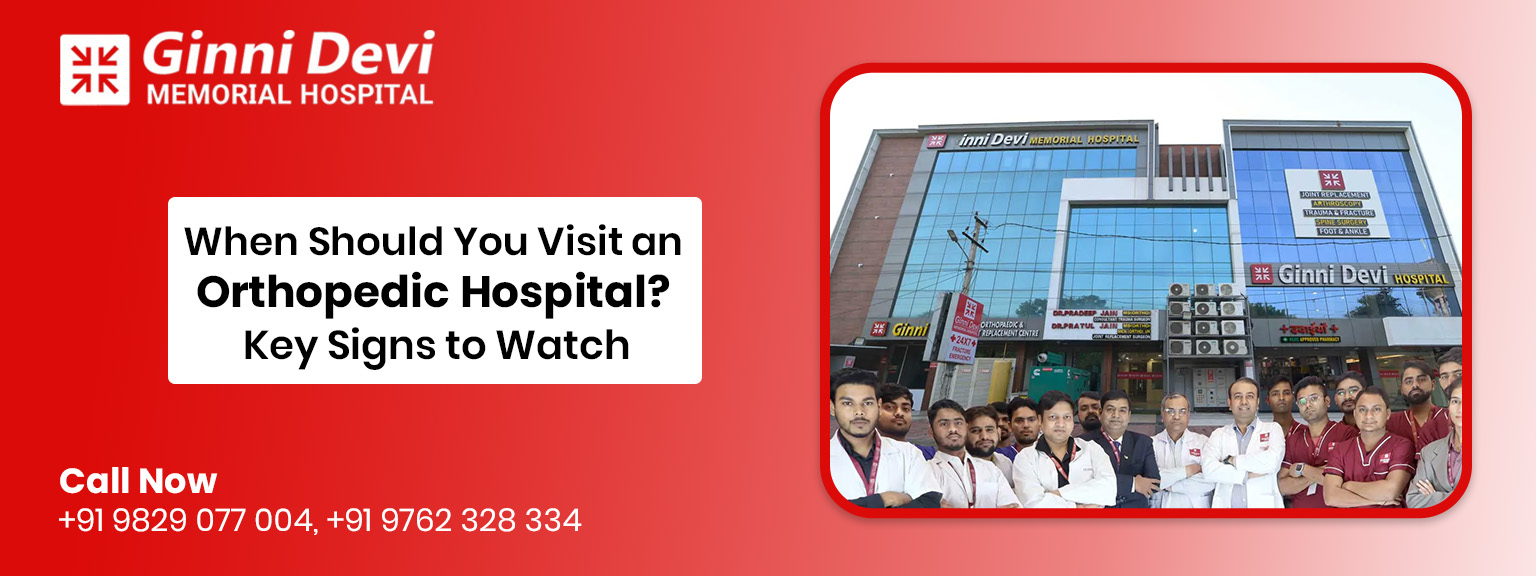We’ve all done it, like dismissed joint pain as “just tiredness,” blamed a backache on a bad chair, or told ourselves that an acutely stiff knee just needs a bit of stretching. But on occasion, the pain you’re trying to overlook might be your body’s whisper of distress.
Knowing when to visit an orthopedic hospital isn’t about running panicking to the doctor at every little ache—it’s about seeing the signs that something might be wrong deep inside the muscles, bones, or joints that help you get through your day.
Whether you’re 25 or 65, ignoring these signs can mean making pain a permanent feature in your life. Rather, let’s examine what your body may be trying to tell you—that is, before it’s too late.
So, what does an orthopedic hospital do?
Orthopedic hospitals focus on treating everything that holds your body up, from your joints and bones to your ligaments and tendons. This means they deal with
- Persistent joint or bone pain
- Arthritis (both early and advanced stages)
- Injuries that don’t heal
- Back and spine problems
- Deformities or misalignment
- Sports injuries
- Fractures or bone breaks.
Warning Signs: When to Visit an Orthopedic Hospital
You don’t need to be in unbearable pain to visit an orthopedic specialist. Here are the key signs you shouldn’t ignore:
Pain that overstays:
A mild sprain or strain may take a few days to improve. But if pain persists for 2 weeks or more in your knees, hips, back, shoulders, or any of your joints, and lasts longer than something you can ignore. Then it may be a sign of something more serious, such as arthritis, a problem with the cartilage in the joint, or an injury that isn’t healing properly. This is one of the key factors when to visit an orthopedic hospital.
Swelling or Warmth Around a Joint
Swelling around joints, particularly if it’s warm, tender, or red, may be a sign of infection, gout, or a fluid collection. This has to be taken care of right away! Don’t dismiss the swelling as a minor issue because it can progress to joint destruction if left untreated.
Frequent Numbness or Tingling:
Do you get pins and needles often in your hands or legs? This could be a pinched nerve in your back or wrist, and not necessarily poor posture. If left untreated, nerve damage is irreversible. This is indeed one of the most obvious instances when to visit an orthopedic hospital, especially if there is an increase or radiation of the feeling.
Stiffness that slows you down
Whether you wake up each morning feeling like your joints are locked in place or you find it difficult to bend or twist any one area of your body, it’s more than just the ache and “old age.” Stiffness in your joints may result from degenerative conditions such as osteoarthritis or inflammation. The sooner you catch it, the earlier you get treatment.
Trouble Walking, Sitting, or Climbing Stairs
Knees, hips, and back are your foundation. If you suddenly find that you’re unable to perform simple actions, like standing up from a chair, walking up and down stairs, or walking without limping, your joints may be out of alignment.
You may not need surgery, but there could be some early orthopedic intervention. This is the instance when to visit an orthopedic hospital.
Odd Changes in the Shape of Joints
Is your knee starting to rotate too far inward or outward? Are your fingers starting to look crooked? Deformities can occur silently and are frequently a reflection of worse arthritis or joint destruction. This is one of those underrated signs of when to go to an orthopedic hospital. “Early intervention can often prevent the progression of the deformity.
Repeat injuries or weakness.
If you keep hurting the same ankle, shoulder, or knee, it’s not bad luck. You could have some underlying weakness or poor alignment, or you might be unstable, for which you need treatment. This is the most prominent sign when to visit an orthopedic hospital.
What Happens During an Orthopedic Visit?
When you walk into a reliable Orthopedic hospital in Jaipur, like Ginni Devi Memorial Hospital, here’s what you can expect:
- They listen to your first
- Examining your problem
- Imaging test, if needed
- Planning recovery.
Conclusion:
You don’t wait until your car is wrecked to start fixing the brakes—and you don’t wait till your joints fail either. Listen to your body and get ahead of it. Little signs now can be a stop sign to big surgeries in the future. Simply visit Ginni Devi Memorial Hospital, the prominent knee replacement hospital in Jaipur, and start your journey towards an active, painless life.




